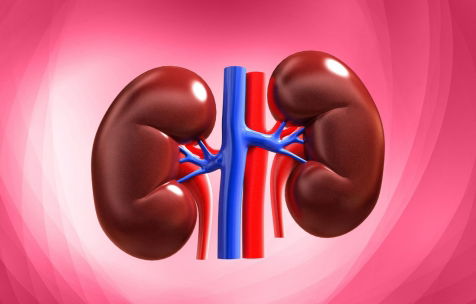Kidney Test, Urea -Creatinine Testing

Question 1. What is Kidney Function Test?
Kidney function test is the test used to detect presence of kidney disease. Kidneys play very important roles in our body. They maintain fluid and electrolyte balance, metabolize and excrete various wastes and toxins that enter our body via food water or as medications. Kidneys also produce certain hormones responsible for maintaining hemoglobin (erythropoietin) and bone strength (vitamin D).
Damage to kidneys can occur as a result of direct injury (infections, drugs, & toxins) or indirectly from loss of fluid (diarrhoea and vomiting). Urea and creatinine are tests are the most routine and commonly used tests for measurement of kidney disease. Many other tests although more accurate are too cumbersome for routine application. Some centres will also provide calculated GFR (glomerulo-filtration rate), an indirect but more accurate measure of kidney function.
Urea is a by-product of protein that is exclusively excreted by kidney. Creatinine is a by-product of creatine (an energy protein inside skeletal muscles) and also excreted by kidneys. Urea and creatinine levels are first to rise when kidneys fail to perform their roles. Therefore, by measuring urea and creatinine levels in blood we are able to detect, and monitor kidney damage. (Go to sections on creatinine and urea below for details).
Question 2. When should I suspect if I have kidney disease?
You should have your kidney tests performed every time you are very ill and given prescription medication as some medications, particularly antibiotics are dangerous and can worsen pre-existing kidney disease.
All patients with the following should have kidney check routinely:
Profuse diarrhoea and vomiting
High blood pressure or hypertension
Diabetes mellitus
Intravenous injections and antibiotics
On long term medications
Unwell for no apparent reason
Blood in urine
Flank or lower back pains
Increased urine frequency
Ischaemic heart disease
Urine infection
Arthritis & Gout
Systemic infections: Malaria, HIV & typhoid
In addition in Children/infant:
Poor Growth
Poor Feeding
Lethargy/Unwell
Question 3. How do I know if I have kidney disease?
Many do not have any complaints even in the presence of kidney disease. No symptoms are specific for kidney disease. It may include increased urge to urinate, lack of urine despite drinking lots of fluids, weight loss, anaemia, high blood pressure, vomiting and anaemia.
The key is the presence of other conditions mentioned in Q2 above that may course suspicion for kidney disease.
Question 4. How is the test performed?
A small blood sample of about 5-10mls is taken. No special preparation is required. No further blood sample is required as this can be also used to test for other basic chemistry tests including liver, pancreas, diabetes, gout, calcium, cholesterol and cancer blood tests.
Question 5. How long before the results available?
The test is very simple and takes only few minutes. It can take 10-20 minutes depending on laboratory workload. You may return to your doctor on the next appointment day for discussion of results. Patient or doctor is usually contacted for urgent results. All reports are kept confidential and only accessed by patient or his/her doctor.
Question 6. What does the test report mean?
The results are reported as normal or abnormal. If abnormal you will be advised and referred appropriately to your doctor or specialist.
Question 7. What is the Treatment?
Treatment depends on cause of your kidney disease. Simple advice on on-going kidney disease include maintain good fluid balance, eating healthy and regular kidney tests especially if you are taking medications that is metabolised or excreted by kidneys particularly antibiotics.
Question 8. My kidney function test is abnormal. Can it become normal?
This depends on whether or not you have acute kidney (renal) failure (ARF) or chronic kidney (renal) failure (CRF). If you are diagnosed as having CRF, it is very unlikely that your kidney test will become normal unless you have regular dialysis or kidney transplant. Without transplant, you may have to live with the fact that your kidney is not well and avoid events that may worsen your kidney function further such as infections. Individuals with CRF also develop anaemia and electrolyte problems. That can make them feel weak and tired and many will have nausea and lose appetite. This is why CRF patients need to have regular doctor visit and follow-up so these problems can be detected early and managed quickly. Persons with ARF have good chance of complete recovery once correct treatment is given in a timely manner.


